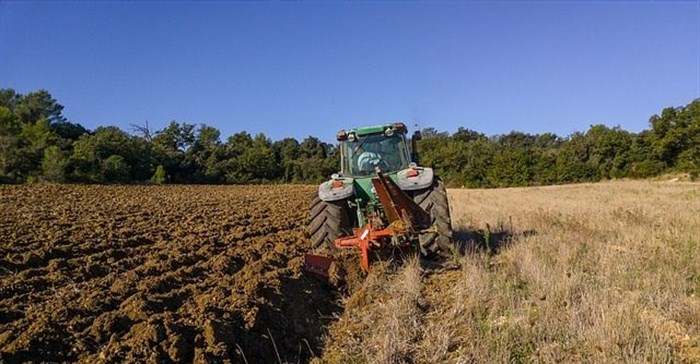
Top stories






More news















In December, the African National Congress resolved to pursue a policy of expropriating property without compensation. Cyril Ramaphosa has subsequently recommitted the party to that goal and the necessary constitutional amendments. However, these are likely to be counter-productive, harm commercial farming, and reduce living standards in South Africa.
Meanwhile, in other parts of the world different societies have been grappling with the consequences of undermining property rights. In January this year, for example, four people were shot dead and 18 injured during food riots in Venezuela. News reports cite supermarkets being raided. In one report we consulted, people robbed a milk truck and took the contents away in buckets. Earlier in the year, a soldier was arrested for shooting dead a pregnant woman in a fight over pork. A Reuters report said that ‘food riots have become frequent’.
Also this month, there have been riots in Sudan after the government of that country raised the price of flour. According to an AFP report, "bread prices more than doubled… amid dwindling wheat supplies." A student was killed in the protests and the government seized copies of newspapers that had been critical of its handling of the food price crisis.
The threat by Ramaphosa to nationalise farms in South Africa without compensation will expose the country to the same risks.
Farmers mainly raise capital by using their farms as collateral. In the absence of capital, many farmers would be unable to plant crops or invest further in their businesses. Shortages would then arise and prices would increase. In a country where more than half of young people are unemployed – and in which StatsSA last year reported that levels of poverty are rising – the consequences for political and social stability are not difficult to infer. Our research already reveals a sharp uptick in violent anti-government protest action over the past decade that coincides with a decline in popular confidence in the ANC.
Newspaper reports cite Sudanese protestors gathering outside government offices chanting ‘we want food’ and the same images may well in time play themselves out in South Africa should levels of agricultural production be allowed to slip.
It does not have to be this way. Research shows that the land market has arguably done more than the state to create black commercial farmers over the past decade. Where state-directed land reform projects have failed, the main reason is that the new occupants of the farms do not have title to the properties and therefore cannot raise capital.
The path to successful land reform is simple. Emerging farmers must have full title to their farms and the ability to use that title to raise the capital to run and invest in their businesses. Skills are also important, but the solution here lies in settling the emerging farmers amidst already established commercial producers who will support and mentor them with advice.
The challenge that remains is how to finance the emerging producers to purchase farms in the first place. Writing on Politicsweb, the Zimbabwean analyst, Eddie Cross, has the answer when he writes that "all you have to do is provide low-cost long-term loans" to emerging farmers.
It is necessary that much activist pressure is focused on banks and the state to work together to create such a land-financing vehicle. The banks are on record as saying they support accelerated reform as a strategic objective and they must be made to live up to this commitment.
The ability to raise capital against the value of one’s land is critical if farming is to remain a viable business in South Africa. This is especially so for black producers who are less likely to hold other forms of capital.
It is well established that the model of commercial farming in South Africa that sees a title being leveraged to raise capital has worked extremely well to secure the country’s food security while allowing world-beating innovation and production methods. But all farmers, established and emerging, black and white, must understand that if the EWC decision is implemented then this model will be destroyed with it. In that case, all farmers and their representatives will:
• Run the risk of losing title to their property
• Become tenants of the state
• Lose the ability to raise capital and expand their businesses
• Be denied the advantages that successful commercial farmers enjoy in all successful competing regions
• Be complicit in surrendering one of the great victories over apartheid with no guarantee that they will ever enjoy property rights again
The better model of land reform that we propose places no burden on the taxpayer.
Black producers will own their farms and raise capital against the value of their land. Investment in innovation and better production methods will expand and ensure South Africa’s food security. South Africans will be insured against the risk that food price inflation triggers a dramatic reversal in their living standards. And the ruling party will be insured against the risk of such inflation accelerating its removal from power.